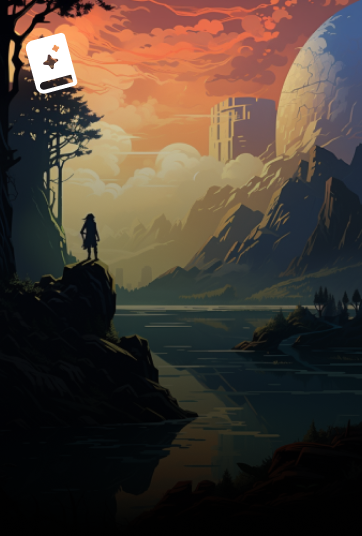
The Fox Wife
Ratings18
Average rating3.9
Some people think foxes are similar to ghosts because we go around collecting qi, but nothing could be further than the truth. We are living creatures, just like you, only usually better looking . . .
Manchuria, 1908.
In the last years of the dying Qing Empire, a courtesan is found frozen in a doorway. Her death is clouded by rumors of foxes, which are believed to lure people by transforming themselves into beautiful women and handsome men. Bao, a detective with an uncanny ability to sniff out the truth, is hired to uncover the dead woman’s identity. Since childhood, Bao has been intrigued by the fox gods, yet they’ve remained tantalizingly out of reach—until, perhaps, now.
Meanwhile, a family who owns a famous Chinese medicine shop can cure ailments but can’t escape the curse that afflicts them—their eldest sons die before their twenty-fourth birthdays. When a disruptively winsome servant named Snow enters their household, the family’s luck seems to change—or does it?
Snow is a creature of many secrets, but most of all she’s a mother seeking vengeance for her lost child. Hunting a murderer, she will follow the trail from northern China to Japan, while Bao follows doggedly behind. Navigating the myths and misconceptions of fox spirits, both Snow and Bao will encounter old friends and new foes, even as more deaths occur.
New York Times bestselling author Yangsze Choo brilliantly explores a world of mortals and spirits, humans and beasts, and their dazzling intersection. Epic in scope and full of singular, unforgettable characters, The Fox Wife is a stunning novel about old loves and second chances, the depths of maternal love, and ancient folktales that may very well be true.
Tags
Reviews
Popular Reviews
Reviews with the most likes.
This book is a slow burn, but if you can hang in there it is SO worth it.
This is ultimately a story about revenge. It's told from dual perspectives, one is a young female fox shifter and the other is an older man that is working as an investigator. Since this is not a plot-driven story, you really get to know these two characters and everyone they meet along the way.
It is such a beautiful story based on Asian mythology and I'm glad I stuck with it.
Graceful, evocative, and tender. Also annoyingly clumsy at times.
The story is lovely, as is the storytelling: alternating short chapters following two wildly disconnected characters, one perspective first-person, the other third-person, each of them intriguing complex people who grow ever more fascinating over the course of the book; both as we learn about their past, and as they navigate their present. Exquisitely paced.
Marred by too much dependence on serendipity. Fortuitous encounters, perfect timing, too many of these to count. So many, that I started just expecting them: okay, now’s a good time for a deus ex machina. That kills tension... but I kept reading, enjoying myself nonetheless. The story is original, the setting rich and new to me.
Snow, a fox, is looking for someone who escaped her long ago. Bao, a private investigator in his retirement years, is hired to learn the name of a woman whose body was found at the steps of restaurant. Obsessed with foxes, he's lured into the larger mystery when he realizes foxes are at every turn of his investigation.
This is a dual POV (one 1st person, the other 3rd) historical fiction fantasy that drew me in for the fox mythology. Both POVs are looking for something, but it's Bao's POV I was wholly invested in. The mystery was great, he as a character was interesting and layered, and the fox mythology from the view of non-foxes was fascinating and always present. I struggled with Snow's POV until a third of the way, but still Bao carried me through. I can see how some might be invested in Snow, who slyly navigates the patriarchal norms and dangers around her. I did like Snow, especially in the last quarter, which was a gratifying closing overall.
For those interested in the historical fiction, this takes place at the time of anti-imperial sentiments and revolutionary movement against the Qing government in the early 1900's. Through both POVs we see the low attitudes towards and poor treatment of women, including accepted imprisonment.
Content warnings for repeated mentions of grief around loss of child, sexual harassment, mentions of imprisonment.


































